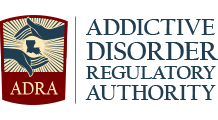Obsessive-compulsive disorder (OCD) is characterized by obsessions and compulsions that are intrusive, time-consuming and distressing. OCD can be emotionally and physically draining, causing challenges in relationships, school and work. At Ascension Saint Thomas Behavioral Health Hospital, we offer OCD treatment to help you find relief from symptoms and improve your daily life.
Signs & Symptoms of OCD
he signs and symptoms of OCD can be broken down by obsessions and compulsions. Some people may suffer from both obsessive and compulsive symptoms, while others may experience one type more frequently than the other.
Obsessions are defined by recurrent thoughts, urges and images that are intrusive and unwanted. Compulsions include repetitive behaviors that are performed as a response to obsessions or that follow a strict set of self-imposed rules.
Examples of obsessions that can be related to OCD include:
- Excessive fear of contamination
- Extreme focus on cleanliness
- Feeling the need to repeat words and phrases or count numbers
- Inability to control intrusive thoughts that are aggressive, sexual or religious in nature
- Intense fear of harm to yourself or a loved one
Examples of compulsions that can be related to OCD include:
- Excessively cleaning (e.g., vacuuming, dusting and doing laundry more often than needed)
- Excessive hand-washing and showering out of fear of being dirty or contaminated
- Repeating certain numbers, words and phrases over and over again
- Needing to perform rituals like touching an item a certain number of times before leaving a room
- Insisting that items be placed a specific way to maintain symmetry or order
The symptoms of obsessive-compulsive disorder can be consistent with those of other mental health concerns, so it is important to receive a professional diagnosis.
OCD Causes & Risk Factors
There are a number of potential causes and risk factors that can contribute to the onset of OCD symptoms. Causes and risk factors for obsessive-compulsive disorder can include:
- Environmental – Suffering from physical or sexual abuse during childhood and other stressful or traumatic events can trigger the development of OCD.
- Genetics – Having a first-degree relative, such as a parent, who is diagnosed with OCD may put you at a greater risk for developing symptoms.
- Gender – Females have a slightly higher rate of adult-onset OCD symptoms, while males are more commonly affected during childhood.
Effects of OCD
Left untreated, obsessive-compulsive disorder can result in a low quality of life and cause impairments in many aspects of a person’s life. Those who suffer from OCD may find themselves avoiding certain situations that could lead to a trigger, resulting in negative effects such as:
- Developmental difficulties
- Avoidance of relationships or social situations
- Family dysfunction over imposed sets of rules
- Health problems due to avoidance of doctors’ offices and hospitals
- Skin lesions from excessive picking or washing
- Incompletion of school or work assignments due to obsessions over perfectionism
Those who are struggling with OCD are also at a higher risk for suicide, with nearly half of all individuals diagnosed with obsessive-compulsive disorder reporting suicidal thoughts at some point. Proper OCD treatment is crucial in preventing the potentially harmful effects of this disorder.
Therapies Used to Treat OCD
At Ascension Saint Thomas Behavioral Health Hospital, we use a variety of therapies to treat OCD symptoms, including cognitive behavioral therapy, dialectical behavior therapy and experiential therapies. We also provide medication management services when needed. During the admissions process, our team will assist you in determining which types of therapies will be beneficial to incorporate into your treatment plan.
Your OCD treatment plan might also consist of individual therapy sessions, group therapy and family sessions, giving you the chance to practice the techniques you need to effectively manage OCD symptoms.
Once you and your team decide that you are ready to transition out of OCD treatment, you will work together on an aftercare plan. Your aftercare plan might include a referral to an outpatient treatment place, support groups and additional resources to ensure long-term recovery.
Benefits of Receiving OCD Treatment with Us
When you choose Ascension Saint Thomas Behavioral Health Hospital as your OCD treatment place, you will work with a diverse team of professionals, including psychiatrists, licensed therapists, registered nurses, general practitioners and dietitians.
You and your team will work together to create an OCD treatment plan that is completely personalized to address your unique concerns and allow you to reach your treatment goals. Our holistic approach to OCD treatment ensures that the mind, body and spirit are taken into account as we help you work toward healing.
When you receive obsessive-compulsive disorder treatment at Ascension Saint Thomas Behavioral Health Hospital, we offer our full commitment to your recovery.
This content was written on behalf of and reviewed by the clinical staff at Ascension Saint Thomas Behavioral Health Hospital.






















